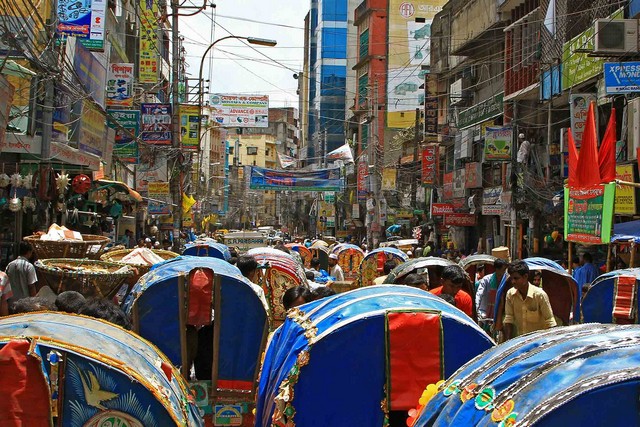By Abdullah Al-Ahsan
Even though not on a scale comparable to Iraq, Syria or Afghanistan, the South Asian Muslim-majority country Bangladesh has witnessed hundreds of extrajudicial killings in the street and in police custody as well as many dozens of forced disappearances since the government of Sheikh Hasina came to power in early 2009. Journalists have been killed and unjustly imprisoned, and TV channels and other media outlets critical of the government have been closed down. According to various human rights organisations such as the Amnesty International and the Human Rights Watch, political and media freedom has been significantly curtailed and democratic institutions and opposition forces in the country have been weakened by way of repression and civil rights violations committed mainly by the police and secret services.
All these have been further compounded by the executions of four high-profile political leaders – former minister Mr Salahuddin Quader Chowdhury of Bangladesh Nationalist Party (BNP) and Mr Abdul Quader Molla, Mr Muhammad Kamaruzzaman and former minister Mr Ali Ahsan Mohammad Mujahid of Bangladesh Jama’at-e-Islami (BJI). Now the government seems to be wrapping up all formalities to execute the former minister and the chief of Bangladesh Jama’at-e-Islami Mr Matiur Rahman Nizami and another influential BJI leader Mr Mir Quasem Ali. A number of other leaders of BJI and BNP and thousands of their political activists are languishing in various prisons in the country.
The death sentences against the opposition leaders have been passed on the basis of alleged war crimes perpetrated during the civil war in Bangladesh in 1971 through which the country was born. Importantly, no criminal cases were initiated against any of the defendants in any courts of law in Bangladesh or beyond before 2010; this despite the fact that the current ruling party Awami League, under the leadership of Prime Minister Sheikh Hasina’s father Sheikh Mujibur Rahman, was in power in the country right after the 1971 war. It was in power again in 1996-2001. Therefore, logically, the timing of the prosecution that began only in 2010 leaves sufficient room for misgivings concerning the possible intentions of the lawsuits and the executions. Moreover, many statements of different government ministers in the last years suggest that, in a Bangladesh of politicized judiciary, the judges have been carrying out orders from the executives with regard to the death sentences.
Needless to say, the Skype conversation scandal of 2012 involving a judge of the so-called International Crimes Tribunal (ICT) made it clear that the trial is a political ploy to weaken the opposition by way of implicating a number of political leaders mostly from BJI and BNP with crimes committed about four decades ago. Sadly, the Tribunal has not been maintaining international standards and no international observers have been allowed to witness the judicial process; and many defense witnesses disappeared (kidnapped by government forces). An Economist article describes the sham process well:
During the first four-year (1971-1975) rule of Awami League, while political opponents were marginalized and BJI leaders were politically ostracized for their support for a united Pakistan, nobody ever brought any accusation of war crimes against them. What is more, during the anti-autocracy (anti-Ershad) movement in the late 1980s and then again during the anti-BNP movement in the early 1990s, Awami League under Sheikh Hasina’s leadership collaborated with BJI leaders, and these ‘convicted’ Jamaat leaders were members of various all-party committees. Suddenly, after AL came to power in Bangladesh for the third time in early 2009, the government and BJI’s political detractors drummed up media attention and started parading a number of BJI and BNP leaders as war criminals. Such political manoeuvrings, manipulations of the 1971 war and wrecking tactics do not augur well for a developing country like Bangladesh.
Bangladesh is a hugely resourceful country with immense human potential. In order to ensure the proper utilization of the various resources it has, the country needs a sound democratic culture and political stability. However, the degradation of the law and order situation in the country and the stifling of opposition voices and media freedom do not suggest that it is heading towards the right direction. Moreover, passing death sentences against the opposition leaders as well as subsequent executions with inadequate evidence taints the country’s image internationally. A good reputation of Bangladesh as a democratic country with satisfactory human rights records is also very important for its millions of migrant workers and professionals working in other countries including Malaysia.
Dr. Abdullah Al-Ahsan is an Executive Committee member of the International Movement for a Just World (JUST).
Malaysia.
12 April 2016.

